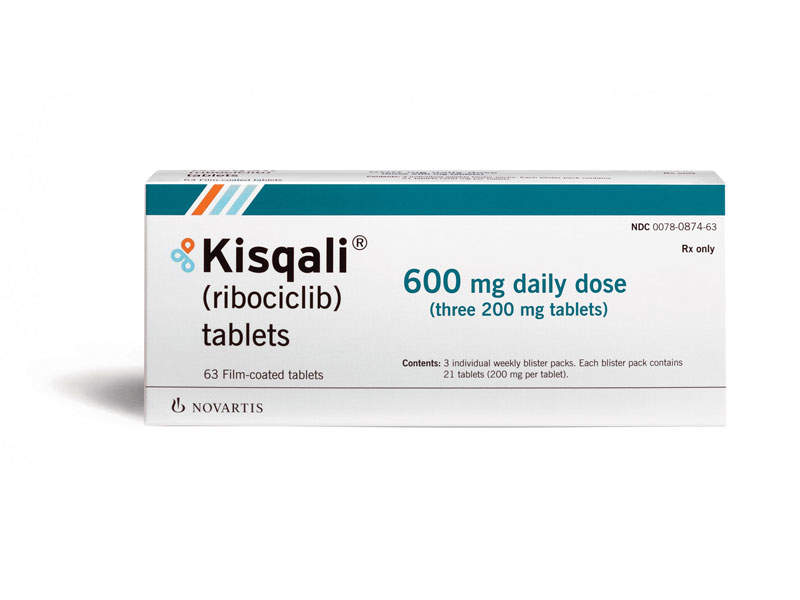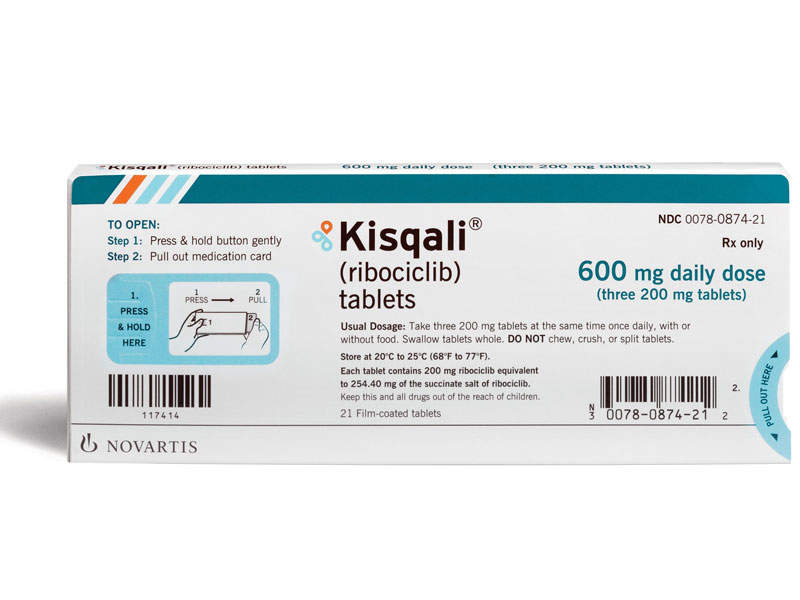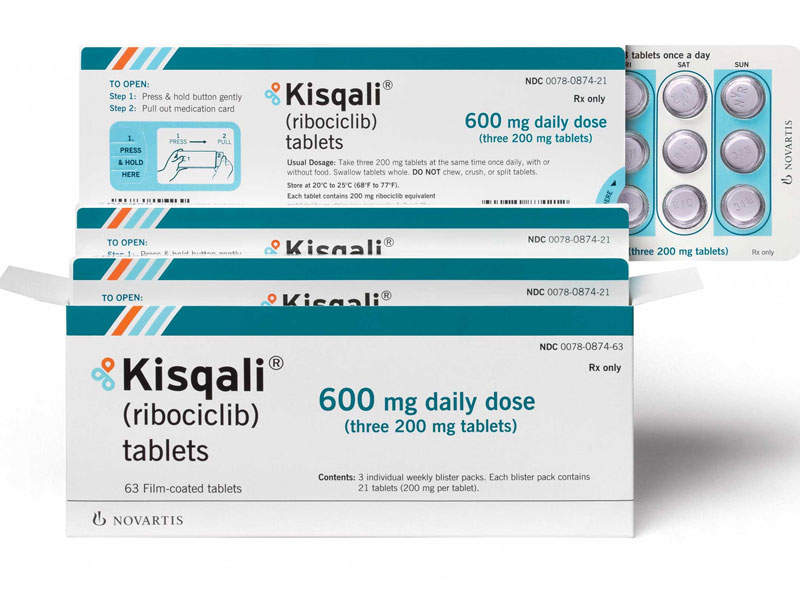
Formerly known as LEE011, Kisqali® (ribociclib) is a cyclin-dependent kinase 4 and 6 (CDK4/6) inhibitor indicated for the treatment of hormone receptor positive, human epidermal growth factor receptor 2 negative (HR+/HER2-) metastatic breast cancer in post-menopausal women.
Kisqali was developed by Novartis Institutes for BioMedical Research (NIBR) in partnership with Astex Pharmaceuticals.
The drug received US Food and Drug Administration (FDA) breakthrough therapy designation in August 2016 and was accepted for priority review in October 2016.
Novartis received FDA approval for Kisqali as a combination drug with any aromatase inhibitor in March 2017.
Breast cancer types and symptoms
Breast cancer emanates in the inner lining of either the milk ducts or lobules in the form of a malignant tumour. This can spread to other parts of the body. It is the second most common type in the US after skin cancer.
More than 250,000 women in the US alone will be diagnosed with invasive breast cancer in 2017, estimates the American Cancer Society.
Accounting for more than 70% of the all breast cancers, the hormone receptor positive (HR+) and human epidermal growth factor receptor 2 negative (HER2-) are the most common types. Disease symptoms include a lump in the breast or change of shape, pain and swelling in the armpits, redness of the skin, a rash around the nipples, and thickened breast tissue.
Kisqali’s mechanism of action
Kisqali contains cyclin-dependent kinase 4 and 6 (CDK4/6) inhibitor helps to slow the progression of cancer. The drug regulates cell cycle progression through phosphorylation of the retinoblastoma protein (pRb). The combination of Kisqali with anti-oestrogen results in increased tumour growth inhibition.
The drug is available for oral administration in 200mg tablets.
Clinical trials on Kisqali (ribociclib)
FDA approval for Kisqali was based on results obtained from a pivotal phase III clinical trial known as Mammary ONcology Assessment of LEE011’s Efficacy and Safety-2 (MONALEESA-2). It was a randomised, double-blind, and placebo-controlled study, which enrolled 668 postmenopausal women with HR+/HER2- metastatic breast cancer.
Patients were administered randomly with Kisqali once-daily oral dose of 600mg (three 200mg tablets) in combination with an aromatase inhibitor, letrozole, and letrozole alone plus placebo.
The primary endpoint of the study was comparison of investigator-assessed progression-free survival (PFS) between Kisqali in combination with letrozole and letrozole alone. The secondary endpoints included overall response and clinical benefit rate, incidence of adverse events, and health-related quality of life outcomes.
Interim study analysis showed that more than 58% of patients treated with Kisqali plus letrozole remained alive, while progression-free and median PFS could not be determined. The median PFS for letrozole plus placebo arm was 14.7 months. Kisqali plus letrozole was observed to have reduced the risk of progression or death by 44% over letrozole alone.
The study was subsequently continued for an additional 11 month follow-up. These results showed the median PFS in patients treated with Kisqali plus letrozole was 25.3 months, compared to 16 months in patients treated with letrozole alone.
The most common severe adverse events reported in the Kisqali plus letrozole arm compared to letrozole alone arm included neutropenia, leukopenia, hypertension, elevated alanine aminotranferase, lymphopenia, and elevated aspartate aminotranferase. The most common all-grade adverse events reported in the study included neutropenia, nausea, infections, fatigue and diarrhoea.
Additional trials on Kisqali
Novartis continues to perform additional trials on Kisqali under the MONALEESA clinical trial programmes, including two additional phase III trials known as MONALEESA-3 and MONALEESA-7. The studies are aimed at evaluating Kisqali in multiple endocrine therapy combinations in pre-menopausal women.
MONALEESA-3 will evaluate Kisqali in combination with fulvestrant, compared to fulvestrant alone.
MONALEESA-7 will investigate Kisqali in combination with endocrine therapy and goserelin, compared to endocrine therapy and goserelin alone.






